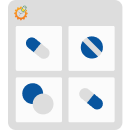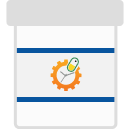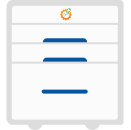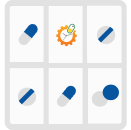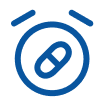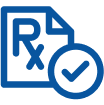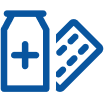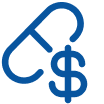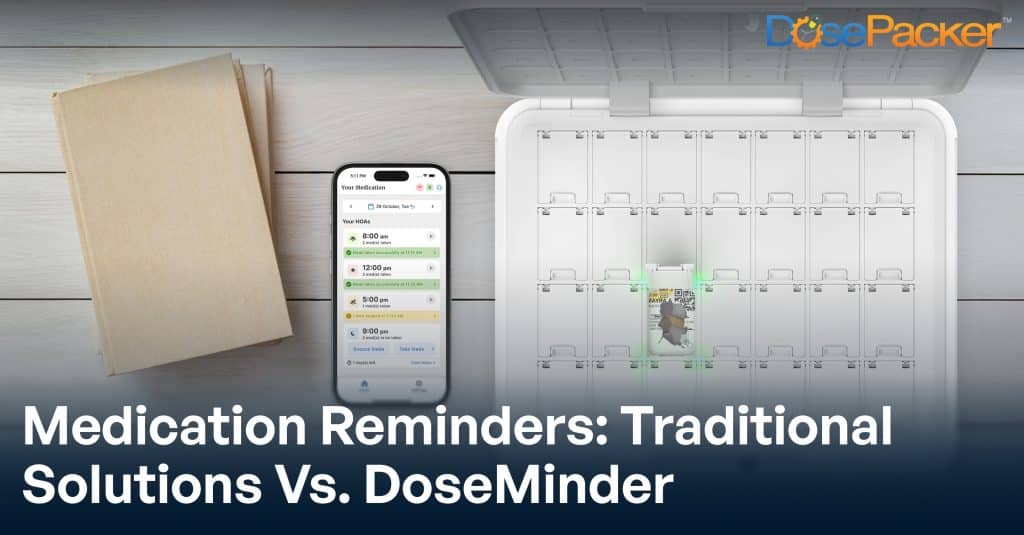Unlock the latest in medication management technology and grow your care community with us.
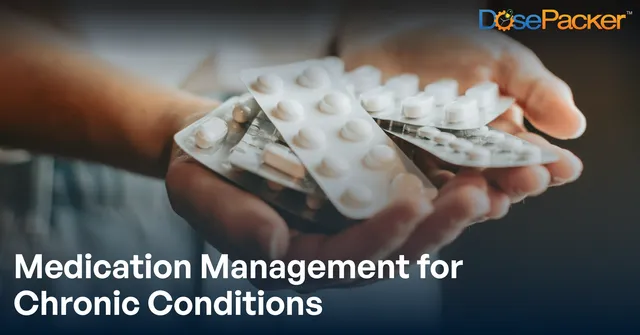
For millions living with chronic conditions, each prescribed pill represents hope, healing, and the promise of a better tomorrow. Yet, the complexity of medication routines can often feel overwhelming.
Chronic diseases like diabetes, hypertension, and asthma are more than just medical diagnoses. They’re lifelong conditions that demand careful, consistent care. A single missed dose, a forgotten refill, or a moment of confusion can significantly impact one’s health trajectory.
For the dedicated caregivers and patients who wake up each day determined to take control of their health, medication management isn’t just a routine – it’s a critical act of resilience.
At DosePacker, we understand that behind every prescription is a person, someone with dreams and responsibilities. That’s why we’re committed to transforming medication management into a seamless, supportive experience, alleviating stress and complexity while restoring confidence in chronic disease treatment.
Manage Medications with Confidence
The Challenges of Chronic Medication Management
Chronic pain medication management involves learning to adapt and juggle a web of complexities that can feel daunting to patients and caregivers. These challenges can often lead to setbacks that impact health and quality of life. Let’s break down the key hurdles:
1. When Life Gets in the Way
- Forgetfulness:
It happens to the best of us. Busy schedules, fatigue, or simply being human can cause skipped doses. - Confusion:
Medications with similar names, unclear instructions, or overlapping regimens can lead to mistakes. - Financial Strain:
Costly medications force some to ration doses or skip them altogether, prioritizing expenses over health.
Non-adherence is responsible for up to 50% of treatment failures annually in the United States.
2. Complicated Regimens
- Multiple Medications:
Doctors prescribe more than one medication to many patients with chronic diseases—sometimes dozens—each with its own schedule. - Different Timings:
“Morning, noon, evening, with food, without food.” Keeping track may feel like a full-time job. - Risk of Overload:
Complexity often leads to frustration, making patients more likely to give up altogether.
Research shows that over 50% of patients with chronic conditions struggle to adhere to their medication regimens.
3. The Hidden Costs of Mismanagement
- Hospitalizations:
Skipping medications can trigger emergencies, leading to costly hospital visits. - Worsening Conditions:
Poor adherence can cause diseases to progress faster than they should. - Loss of Independence:
For some, unmanaged health can make day-to-day living difficult, burdening caregivers even more.
Medication non-adherence leads to an estimated 125,000 preventable deaths annually in the U.S. alone.
4. Emotional and Mental Strain on Patients and Caregivers
- Patient Anxiety:
Chronic diseases often come with a psychological burden – patients may feel overwhelmed by the responsibility of managing their health. - Caregiver Burnout:
Many caregivers feel stretched thin, balancing their lives with caregiving’s emotional and physical demands. This can lead to stress, fatigue, and even resentment. - Uncertainty:
Caregivers often worry if they’re doing enough or have made mistakes in administering medications.
Tip: Open communication between patients, caregivers, and healthcare providers can ease emotional burdens and build confidence in managing medications .
5. Limited Access to Resources
- Rural or Underserved Areas:
Patients in remote locations may struggle to access consistent pharmacy services or medication deliveries. - Language Barriers:
Misunderstanding prescription instructions due to language differences can lead to dangerous errors. - Technology Gaps:
Not everyone has access to apps, reminders, or tools that could simplify their routines.
More than 60 million Americans live in rural areas, where healthcare access is often limited.
6. Medication Side Effects and Interactions
- Fear:
Patients may stop taking medications if they experience side effects but fail to communicate this with their doctor. - Interactions:
Managing multiple medications increases the risk of dangerous drug interactions, which caregivers might struggle to spot. - Monitoring:
Caregivers often take on the role of observing side effects, a responsibility that can be both stressful and time-consuming.
What Helps: Tools like DosePacker’s compliance medication packaging with clear labeling and organized medications reduce the guesswork in managing complex regimens.
Key Strategies for Effective Medication Management
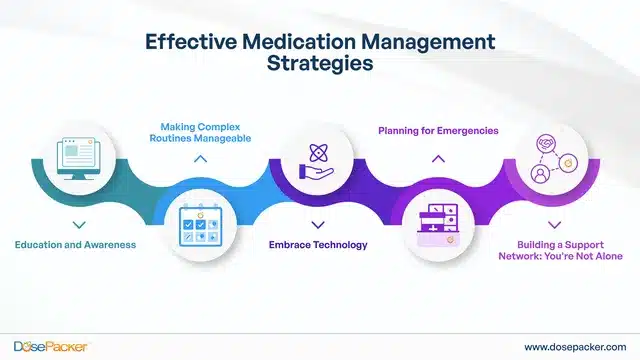
With the right strategies, patients and caregivers can transform the complexity of medication routines into a manageable part of daily life. Here’s how:
1. Education and Awareness
The more you know, the more confident you’ll feel. It’s not about becoming a medical expert overnight, just becoming your own best advocate.
- Ask Questions:
Encourage open discussions with healthcare providers to clarify dosages, side effects, and goals. - Keep a Record:
Maintain a simple chart of medications, including timing, purpose, and potential interactions. - Stay Informed:
Use reputable sources or pharmacy consultations to stay updated on medication changes or alternatives.
2. Making Complex Routines Manageable
The simpler the process, the easier it is to stick to. By implementing smart organizational strategies, you can turn a complicated schedule into a streamlined process.
- Use Pill Organizers:
Invest in weekly or monthly pill organizers with multiple compartments. - Create Visual Schedules:
Use color-coded systems or medication calendars to track daily requirements. - Consider Packaging Solutions:
Explore pre-sorted medication packs like DosePacker’s personalized packaging.
3. Embrace Technology
Technology offers powerful tools for medication management, turning smartphones and digital devices into personal health assistants.
- Medication Tracking Apps:
Download medication reminder apps that send reminders, track doses, and provide medication information. - Smart Pill Dispensers:
Explore automated dispensers that alert you when it’s time to take medication. - Digital Health Platforms:
Embrace integrated systems to improve Medpass operations and connect patients, caregivers, and healthcare providers with each other.
4. Planning for Emergencies
Proactive emergency preparedness ensures continuity of care during challenging times.
- Prepare a Backup Supply:
Keep an extra stock of medications for unforeseen situations like travel or natural disasters. - Emergency Contact Information:
Ensure patients have a list of healthcare providers and pharmacies readily accessible. - Know What to Do for Missed Doses:
Discuss action plans with providers to handle missed or late doses appropriately.
5. Building a Support Network: You’re Not Alone
Effective medication management isn’t a solo journey. Involving family, caregivers, and healthcare professionals creates a robust support system.
- Communication is Crucial:
Share your medication routine with trusted family members or caregivers. - Regular Check-ins:
Schedule periodic reviews with healthcare providers to assess and adjust your medication plan. - Leverage Community Resources:
Join support groups or connect with patient advocacy organizations.
DosePacker’s Role in Medication Management
Managing chronic conditions can feel like a long, winding road full of complexities and challenges. But what if there was a partner to make that path smoother, more organized, and less stressful?
Let DosePacker lighten the load and guide you to seamless medication management. At DosePacker, innovation meets practicality to address the most common medication challenges:
- DosePack – compliance medication packaging:
Easy-to-use multi-dose packaging ensures patients take the right medication at the right time every time without the hassle of having to set up med boxes. They are labeled and color-coded according to the patient’s hours of administration to eliminate confusion and errors. - Proprietary vials:
Specially designed vials with child-resistant or easy-to-open caps optimized to simplify medication administration for caregivers.
You don’t have to walk the journey toward better health alone. We’re here to make managing chronic conditions simpler, safer, and more reliable.
Better Health Starts with Better Management
Take control. Ask questions. Explore innovative solutions. Remember, effective medication management isn’t about perfection – it’s about progress, one dose at a time.
Together, we can transform challenges into opportunities, complexity into clarity, and uncertainty into confidence.
